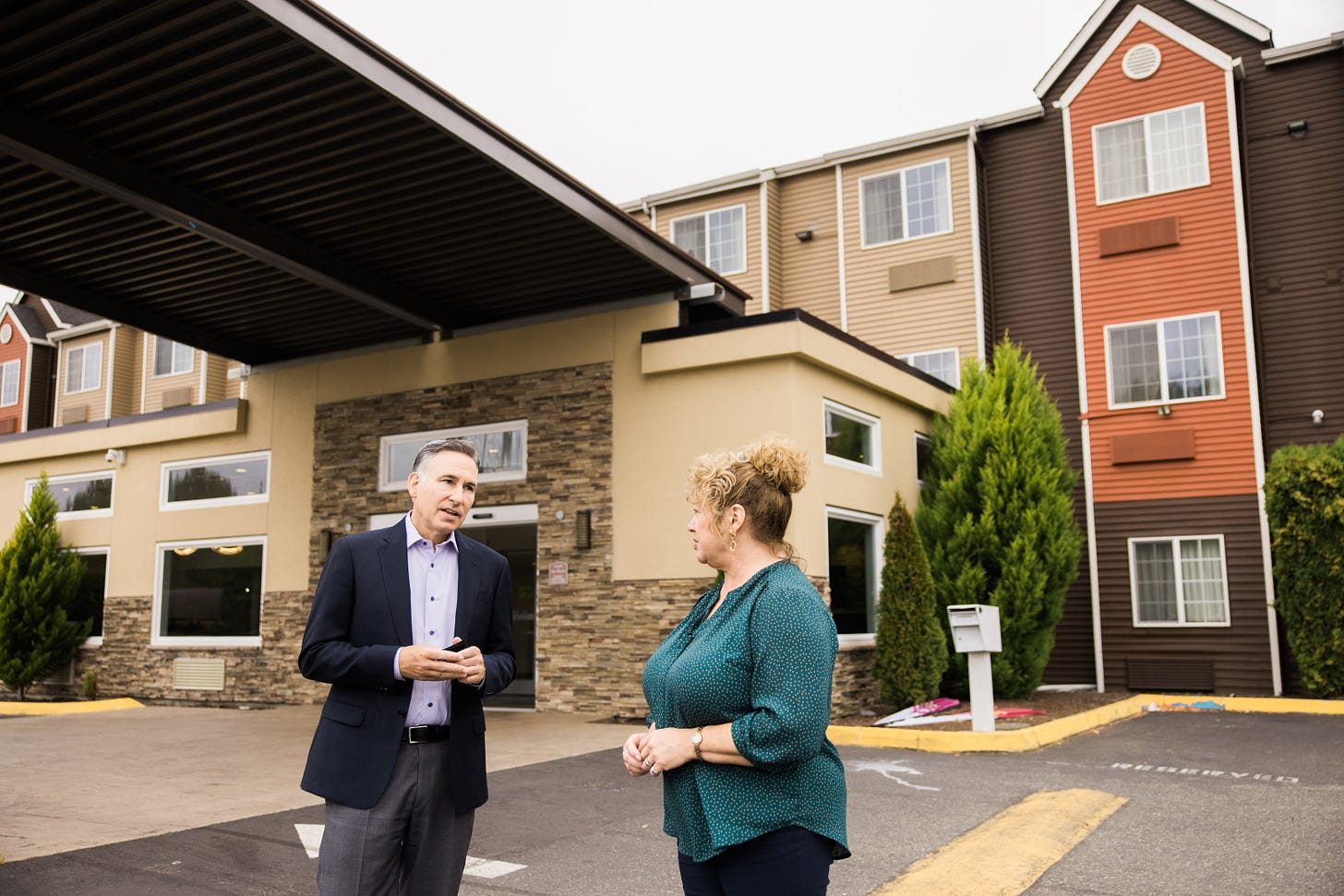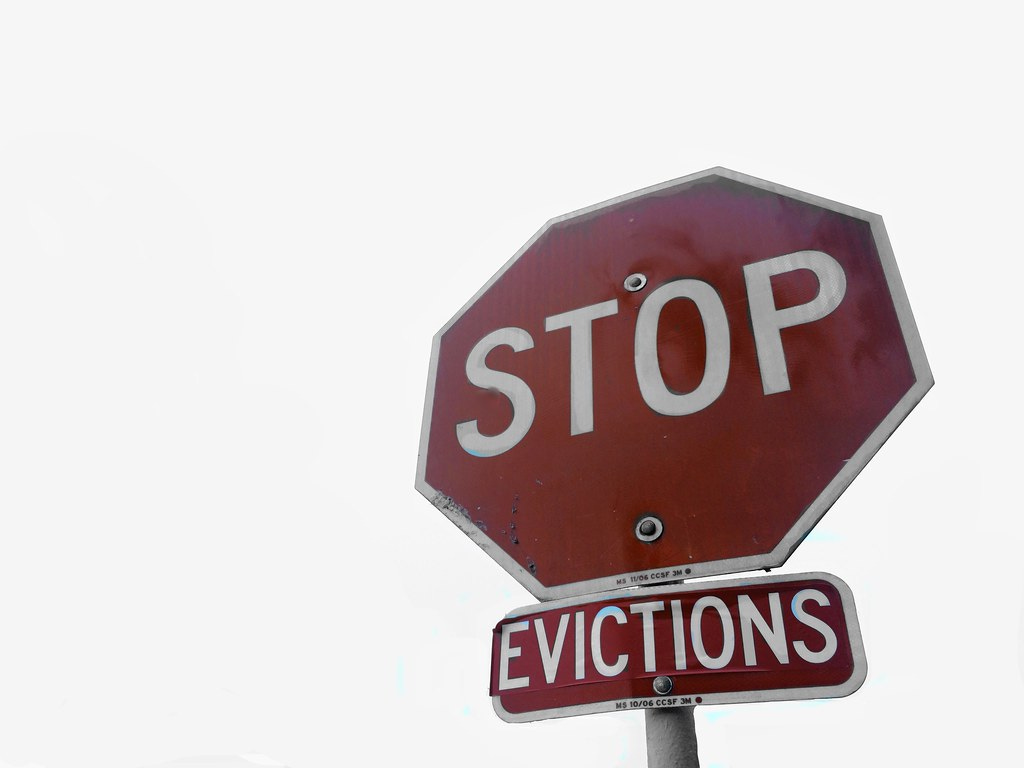
Now that we’ve successfully re-legalized most “missing middle” housing types in Spokane, many housing advocates have been asking the question…what’s next?
Legalizing “missing middle” is not a small win, but it’s also not a panacea. If we’re lucky, it will begin to create more housing choices over the next five, ten, or twenty years as duplexes and triplexes are developed across the city.
But we don’t have time to wait. Renters have been arriving home to massive rent increases, in some cases doubling their rent. And in May, the median home price hit a record $450,000 — a 20% year-over-year increase, and a stunning 55% increase over the past two years. These trends are simply not sustainable—for renters, for homeowners (or prospective homeowners!), for our economy, or for the city at large.
Fortunately, there are actions we can take now to improve housing affordability, livability, and justice. So without further ado, here’s an agenda for housing in Spokane, now that we’ve approved fourplexes.
Housing Justice
The first basket of reforms fall under the category of “housing justice”—essentially, rebalancing the housing market through big bets and transformative changes.

Build social housing. In cities like Vienna, social housing (that is, publicly-owned, mixed-income housing) is the norm, and it’s become an international model. Closer to home, similar programs are being explored in from coast to coast, in Seattle and in suburban Maryland. We could create a publicly-owned, social housing provider here in Spokane, with an infusion of capital from existing City budgets and ARPA relief funds. By leveraging the funds and allowing them to revolve, the impact of say, a $40 million investment would be multiplied many times over into thousands of new units.
Purchase old hotels for permanent social housing. Through its “Health through Housing” program, King County intends to provide up to 1,600 emergency and permanent supportive housing units in former hotels. The program includes 24/7 onsite staffing, case management, employment counseling, and other critical health and social resources. This model is also being successfully deployed in San Jose and Los Angeles, and it’s especially thoughtful, since it both closes distressed hotels and provides a new permanent supportive housing option. King County is using funds from a Legislature-authorized sales tax pursue their program. Where is Spokane using its similar funds? Could Spokane County pass a local sales tax for the same purpose?
Tenant first right-of-refusal. When a landlord decides to sell a property, the tenants living in the unit should have a first right-of-refusal to purchase. For apartment properties, the apartment tenants should have an opportunity to organize themselves to purchase their homes. Give a reasonable period for them to seek financing and make the purchase, but tenants should get first priority over other investors. If we’re going all-in, we could even work with local credit unions and banks to provide preferential financing options, or combine our efforts with the idea below.
Invest in a community land trust or bank. Ben Stuckart is leading an effort to launch a land bank in Spokane, and these efforts can reap massive benefits. Essentially, they serve as a tool to improve the viability of affordable housing finance, and allow nonprofit and affordable housing providers to acquire the land on which they would develop. This plan deserves significantly more attention and investment.
Tenant Protections
The next bucket of items may be the most essential.
The City should enact broad protections to protect tenants from abusive practices, level the playing field in an overheated housing market, and ultimately, prevent evictions which can cause people to fall into homelessness.

Fix tenant screening. Sometimes, tenant background checks are used for discriminatory purposes—“felons need not apply”—which transparently violate federal law. Other times, unclear rental standards or requirements can result in landlords violating the law, even unknowingly. Spokane landlords should be banned from considering criminal records (except perhaps sex offender registries and rentals of bedrooms in shared units), and should be required to rent to the first qualified applicant (some jurisdictions call this “first in time”).
Cap move-in costs and fees. Often, tenants can be required to pay as much as two or three months’ rent in order to move into a new place, when factoring in the security deposit, first and often last months’ rent, and application fees. The total amount required to move into a new unit (including security deposit, any application fees, and first month’s rent) should be no more than two months’ rent. In other words, to move into a unit that rents at $1,200/month, you should be required to pay no more than $2,400 to move in, including all fees and your deposit.
Regulate security deposits. Some landlords use their tenants’ security deposits to finance risky investments, often to illegal ends. This should not be possible. Spokane could require security deposits to be held in trust in an interest-bearing escrow account within 30 days of payment. Then return of the deposit, including interest, less any deductions, should be required within 30 days after the tenancy ends. Landlords should also be required to provide a written summary of any deductions.
Require notice of rent increases. Seattle requires notice of at least 6 months prior to a rent increase. Even a less stringent standard, such as 3 months of notice, would make a significant difference for Spokane renters. If the rent increase is greater than 10% on its own or combined over a 12-month period, a landlord should be required to provide relocation assistance to cover moving costs.
Require a base housing quality standard. No one should have to live in uncomfortable or unlivable conditions. The City should require landlords to start certain repairs within a reasonable amount of time after a written request. For example, if water, electricity, or heat aren’t working, a repair should begin within 24 hours of receiving a request.
Stabilize rents. Rent control is banned in Washington State, but the Legislature could fix that in the next session. For example, the state could mandate that rents may increase by no more than a certain percentage, plus inflation, in a given year. Oregon passed a similar law in 2019 which allows increases of no more than 7% + inflation in a 12-month period. Certain newer units (typically those built within the last 15 years), as well as units constructed with government subsidy, are exempted. This is a fairly “middle-ground” approach, likely to pass constitutional muster and also mitigate opposition.
Further Zoning Changes
Finally, there are further zoning changes that the City could make to continue to make housing development (and thus housing costs and rents!) more affordable.

Abolish parking requirements. Parking takes up valuable land that could be used for housing. For example, two parking spaces (plus associated circulation space) take up about as much space as a two-bedroom apartment. We are losing housing by requiring parking. And the perverse thing is that because low-income people are among the least likely in our community to own a car or drive, the people most harmed by parking requirements are low-income people. Let’s just abolish them. We should prioritize housing for people, not cars.
Allow small-scale commercial within residential neighborhoods. Made With Love Bakery, Doyle’s, Rocket Market, the Grain Shed, and Rockwood Bakery are beloved neighborhood businesses, and we make it far too difficult to open these types of establishments. At the same time, too many neighborhoods still lack the types of amenities it would take to develop a “15-minute” community. The city could allow “accessory commercial units” (ACUs), similar to ADUs, in neighborhood areas as a way to allow low-impact commercial (think coffee shops, bakeries, or a small taproom) to increase amenities, services, and gathering spaces. This would also build on similar efforts passed in 2018 to “reactivate” existing neighborhood commercial structures.
Require affordability. Many municipalities require inclusion of affordable units in all new development, or, in some cases, a payment in-lieu which is deposited into the city’s housing trust fund. Called “mandatory inclusionary zoning,” this tactic is imperfect, as it may increase the cost of market-rate housing, but it does subsidize the development of new, below-market rate units. If Spokane adopts affordability requirements, it should calibrate the program carefully and create a strong plan for below-market housing development.
Incentivize SROs. In the 1900s, single-room occupancy (SRO) hotels exploded across downtown Spokane as the city grew to accommodate tens of thousands of railway workers and miners. These spaces often include a small bedroom (sometimes with an ensuite bathroom), and all kitchen, laundry, and other “high-intensity” facilities are shared with other residents on a floor-by-floor basis. Think dorm rooms. Because they are more compact, rents can be incredibly cheap—sometimes less than $500 per month. SROs are actually allowed in many cases under Spokane’s development code, but we should incentivize their development as a way to address our affordable housing crisis and potentially even sharply reduce homelessness.
Allow point-access blocks. A point-access block, simply put, is a residential building with one staircase instead of two. Instead of an apartment building with units off of both sides of a long corridor, you might have a single staircase with doors off to both sides at each landing. The result is a building that is much more space-efficient (since less space is taken up by stairs and hallways), and thus in many cases less expensive. But there’s also a huge livability benefit: these types of units are often larger, with more two- and three-bedroom units, and they typically have a lot more natural light and cross-ventilation. Point-access blocks are not allowed in most communities, but they’re making a comeback. Spokane should allow PABs across the city to unleash the European housing virtuous cycle!
So, let’s keep organizing. Let’s keep pushing for housing justice, for tenant protections, and for further zoning changes across our city. Let’s keep advocating with City Council, with the mayor, with the state, and with other leaders.
It’s time for transformative change. This agenda—and other actions—can help us get there.





I agree with a lot of your comments your suggestions. I really would like to see SROs become a thing again. Another thing that needs to be done is make the missing middle interim ordinance permanent. I know that's in progress, but we can't get complacent there.
As a small landlord here in Spokane, I support many of these ideas. I am concerned about legal restrictions that eliminate end of tenancy and evictions. My wife and I work very hard to screen our tenants. Yes, that's discrimination. We have to sit down with 20-30 applicants and try to decide who fits our building the best. Our belief is that our tenants should have a say in who they live with. We can't share private applicant information with our tenants. But if a tenant is stealing packages, selling drugs (which is really hard to prove, except people come in and out for 10 minutes all hours of the night and day, especially at the beginning of the month) or breaking occupancy rules. Shouldn't they have a voice. They have to live together. Maybe they should have a stake in this deal. I have a simple business contract between me and each tenant which comes down to; pay rent on time, we provide a decent place to live. All the behavioral issues are between tenants, not really landlords. I don't live there, they do. How about some laws that protect good renters from bad renters?